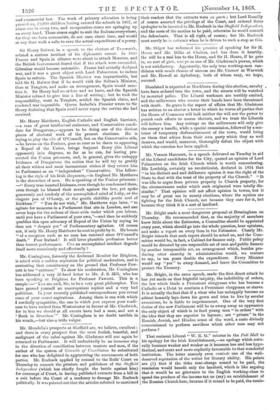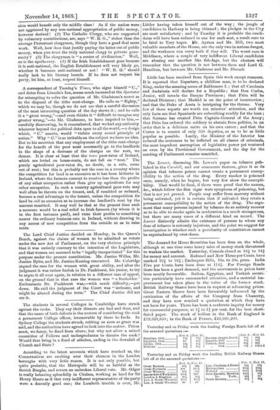That eminent Liberal " W. R. G." returns in the
Pall Mall to his apology for the Irish Establishment,—an apology which natu- rally becomes weaker and weaker as it becomes less and less hypo- thetical, and more and more explicitly favourable to that wonderful institution. The letter scarcely even reminds one of the well- deserved reputation of the writer for literary ability. His points are (1) that if the tithe rent-charge ceased to be paid, the remission would benefit only the landlord, which is like arguing that it would be no grievance to the English working-class to spend the produce of the income-tax on (say) an establishment of the Russian Church here, because if it ceased to be paid, the remis-
*ion would benefit only the middle class ! As if the nation were not aggrieved by any non-national appropriation of public money, however derived ! (2) The Catholic Clergy, who are supported by voluntary contributions, are, says " W. R. G.," richer than the average Protestant clergymen, though they have a good deal more work. Well, how does that justify paying the latter out of public money, when you trust the truly national clergy to private gene- rosity ? (3) The clergyman is " a centre of civilization." Well, .so is the apothecary. (4) If the Irish Establishment goes because it is anti-national, the English Establishment will very likely go, -whether it becomes anti-national or not ! " W. R. G." should really look to his literary laurels. If he does not respect his party, let him, at least, respect himself.



































 Previous page
Previous page